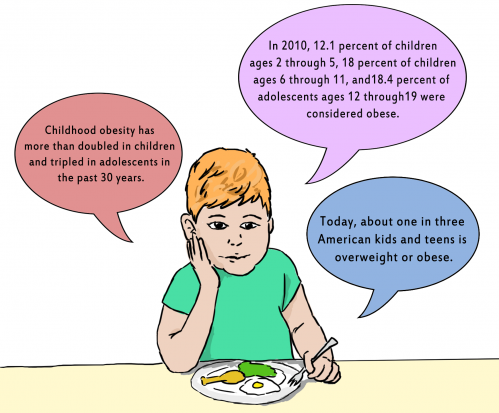Select Schools in 19 States Send ‘Fat Letters’ Home to Students

ANGELA YANG
Staff Writers
To what extent can schools interfere in children’s health? In recent years, the U.S. seems to have been going through a health epidemic resulting in higher obesity rates affecting not only adults, but children and adolescents as well.
According to the Centers for Disease Control, in 2010, 12.1 percent of children ages two through five, 18 percent of children ages six through 11 and 18.4 percent of adolescents ages 12 through 19 were considered obese. Overall in the U.S., obesity rates have levelled off, but still remain quite high. However, another reminder of the nation’s recent health epidemic may soon be sent by schools themselves.
Select schools from 19 states, such as Arkansas and Florida, are beginning to perform body mass index (BMI) screenings on students and are sending the results home to warn parents of their children’s risk of potential obesity and health issues.
These warnings, nicknamed “fat letters,” have received much backlash from parents, as well as eating disorder specialists, who are concerned about the toll that letters take on children’s self-esteem.
“I just think it’s responsible of parents to send them out looking for free candy just because all the other kids are doing it,” a woman identified as Cheryl said, according to CBS.
Criticism arose about the ethics of BMI testing in schools, as many felt that singling out overweight children was problematic. Massachusetts schools also dabbled in the practice of sending fat letters home but soon stopped after self-esteem and bullying issues were reported.
“I would like to see BMI testing in schools banned. For those who are already insecure about their weight, these tests can […] potentially trigger an eating disorder,” Claire Mysko of the National Eating Disorders Association said, according to ABC News.
Select California schools have also begun sending “fat letters” home to students and parents. Districts like Riverside County follow state guidelines and send test results of the child’s BMI to their parents.
Despite the criticism from multiple parents and specialists, some nutritional experts believe that the letters may help combat childhood obesity more efficiently.
“It shouldn’t be a stigma, it’s not a way to categorize someone. It’s just showing that this child has increased risk to be obese as an adult, which then could lead to quite a few chronic diseases,” nutritionist Lauren Schmitt said, according to CBS.
Others acknowledged that the letters have both benefits and detriments.
“I think it’s good because it regards someone’s health, but it might also be offensive because it brings down self-esteem,” sophomore Toni Shyy said.
Ultimately, sending fat letters home as a method of informing parents of their child’s health continues to be adopted by schools despite the backlash.